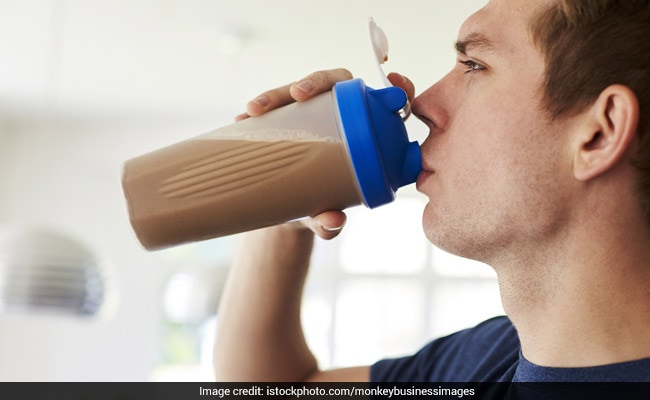Is Protein Powder Bad For You? Nutritionist Explains
Protein powders are nutritional supplements that are getting more and more popular over the years. They come in different forms – the most common ones being whey, soy, and casein protein powders. A water-soluble milk protein makes whey the most common protein, closely followed by soy protein. Protein powders are an effortless and convenient source of complete, high-quality protein that ensures the body gets all nine of the amino acids necessary for its dietary needs. However, since almost all humans get their required quantity of protein from their daily diets, protein powders must be used for specific circumstances only, such as:
- A growing teenager: They need the additional protein to fuel their activities because their body is growing and can utilise more protein.
- Those who start a workout program: People who aim to build more muscle and have just started working out need an additional dose of protein during their workout sessions.
- Those who want to amp up their workouts and build muscles: Those who decide to train to reach a specific goal or compete in a marathon or any extreme sport need to turn to protein powders to fulfil their protein requirements.
- Those who need to recover from an injury: Especially athletes who need to recover from sports injuries often require more protein to help them heal faster and better.
- Those who follow a vegan diet: People who follow a vegan or vegetarian lifestyle remove multiple protein-rich ingredients from their diet, including meat, chicken, fish, and sometimes dairy and eggs, need to include protein powders in their diet to help their body get its required daily quantity of protein.
(Also Read: How Much Protein Is Enough? Celeb Nutritionist Reveals)

Protein powders come in multiple flavours in the market today.
People who show signs of low protein intake are often exhausted, feel weak when working out or doing other laborious movements, take too long to recover from injuries, need extra protein they can get from protein powders in their diet. However, they must calculate how much protein powder is required and the best time to give their body the extra shot of protein.
On the other hand, when consuming protein powders such as whey, it is critical to keep an eye on your blood sugar levels. Most protein bars and powders have a high level of sugar content, and it is important to select ones that have low sugar included. There is no conventional right quantity that can benefit everybody, and it is crucial to know how much protein your body needs before you include protein powders in your daily diet. There are multiple options for which protein powder to take, but it is critical to choose one that offers the best DIAAS score. Different protein powders provide a different quantity and quality of amino acids to the body. Keeping the DIAAS score in mind, the best quality is dairy-based protein powder options like milk protein and whey. However, people opt for other options depending on their lifestyle and personal preferences. It is critical to know which works best for you personally.
(Also Read: 4 Homemade Protein Shakes And Salads For Building Muscles And Weight Loss)

Protein powders can cause side effects in the body too.
However, those people whose daily routine and diet ensure they get the correct quantity of protein from the food you eat, including protein powder in their diets, can damage their health. Since their body doesn’t need the extra protein, all their body will do is break down the excess protein for energy, and at the same time, overburden the kidneys and liver. Having protein powder when the body does not need it is known to cause severe dehydration, digestive distress and weight gain, along with a spike in blood sugar levels.
The indispensable truth is that most people do not need protein powder. However, some people improve their lifestyle by including protein powder and its different forms in their daily diet.
For most people, getting protein from their daily diet is easily manageable. But if someone is unable to get enough protein in their diet for some reason, or if they need more protein than the average person because of their strenuous workouts, then a protein powder-based shake might help with that. In the end, it comes down to people’s lifestyles, needs, and preferences.
About Author: Mac Singh is a dietitian and the co-founder of Fitelo, a fitness app.
Disclaimer: The opinions expressed within this article are the personal opinions of the author. NDTV is not responsible for the accuracy, completeness, suitability, or validity of any information on this article. All information is provided on an as-is basis. The information, facts or opinions appearing in the article do not reflect the views of NDTV and NDTV does not assume any responsibility or liability for the same.
For all the latest health News Click Here

